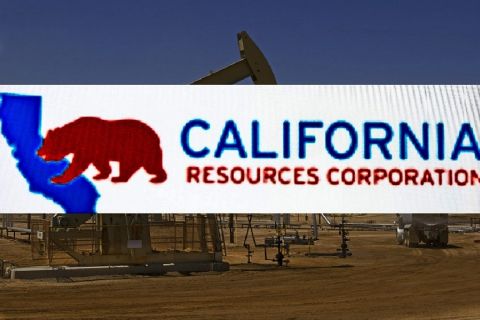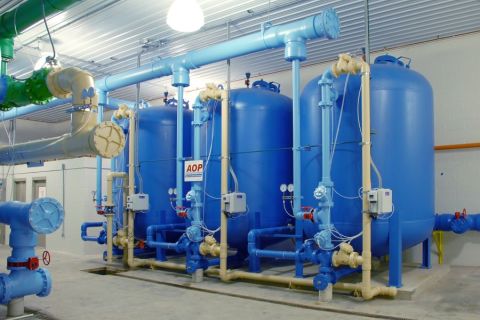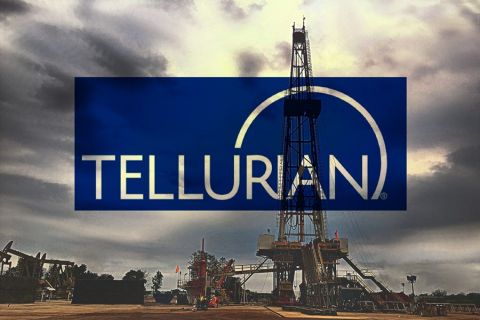After staying out of the acquisitions market for almost all of 2002, Apache Corp., in one swoop, will establish a new core area in the North Sea and become the largest acreage-holder on the Gulf of Mexico shelf. Apache agreed to buy the North Sea's fabled Forties Field and 61 Gulf of Mexico fields from BP Plc for $1.3 billion, adding an estimated 29% to production and 14% to reserves. Apache estimates the deal will net it proved reserves of 233.2 million BOE-20% gas-and 2003 average daily production of 198 million cu. ft. of gas and 65,500 bbl. of oil. Apache hopes to wring more production from these mature areas-BP sold the assets in its effort to focus its portfolio on properties with higher profit margins-and to prove itself as a valuable partner to other majors who may be shedding assets in the future. "While there is execution risk associated with expanding into a new geographic region, we expect Apache's entrance into the North Sea will offer incremental opportunities to take advantage of assets in a region that the major oil companies are seeking to exit," says Jason Gammel, analyst with Prudential Securities. Bob Christensen, analyst with First Albany Corp., says, "Apache enunciated at an analyst dinner [prior to the deal announcement] that it believes more large packages will come to market in the intermediate term from majors faced with the same realities, and that it would be interested in doing additional deals." Approximately two-thirds of the reserves and daily oil production Apache is acquiring are in the North Sea's Forties oil field. Discovered by BP in 1970, the field is the largest ever found in the U.K. sector of the North Sea and today ranks eighth in production and reserves after having produced approximately 2.5 billion bbl. Apache will become field operator with a 96% working interest, and it estimates average 2003 production of 45,100 bbl. of oil per day and net proved reserves of 147.6 million BOE. Apache's production will be transported via the Forties Pipeline System, which will remain a BP-owned asset. Apache estimates $630 million of the deal's price went to the North Sea asset, or $4.27 per BOE. "Management believes the North Sea could still be in the early stages of a multiyear rationalization. Apache hopes to establish itself as a trusted partner to other majors, which may exit the area," says Brad Beago, analyst with Credit Lyonnais Securities. "Apache also pointed out that production could be increased via infill drilling, and has also identified 19 additional drilling locations with an estimated average reserve size of about 3 million bbl. The company has also obtained several exploration prospects in adjacent blocks." The Gulf of Mexico properties are offshore Texas and Louisiana where Apache has existing operations. Apache estimates 2003 daily production of 198 million cu. ft. and 20,400 bbl. of liquids, and net proved reserves of 85.6 million BOE. Apache spent $670 million on the Gulf fields, or $7.83 per BOE. Apache hopes the Gulf deal will turn out like its $750-million purchase of Gulf properties from Royal Dutch/Shell in 1999. Thus far, Apache has recouped 90% of its purchase price plus $500 million of invested capital, with 77% of the reserves still in place, which equates to an overall finding cost of 76 cents per BOE-a drop from the $5.82 per BOE the company originally paid-Beago says. "The transaction highlights the process by which the majors exit areas that were once solid engines of growth but now fail to meet certain return and scale requirements, and thus are sold off, as the majors rationalize their portfolios," Beago says. "Apache is only one of a handful of E&P independents with the resources and financial clout to take over such assets." Apache intends to fund the transaction partly with a 6.2-million-share offering, which is expected to generate about $350 million, and the rest with cash flow and debt. "The effect on the balance sheet does not preclude other near-term deals," says Christensen. He calculates Apache's debt-to-capitalization ratio will go from 29% to 36%. "In our view, this leaves plenty of dry powder to make further acquisitions, should they come along...We would point out that Apache has historically not been shy even after making a major acquisition. Furthermore, we envision Apache's debt/cap reverting to 29% by year-end, as the strong pricing environment means more cash flow toward debt repayment." Gammel says the transaction removes any uncertainty of Apache's ability to effectively redeploy capital. "Given Apache's ability to exercise discipline in purchasing reserves and securing the cash flow from these properties, we feel the company remains poised for future acquisition prospects that may develop during the coming months." Apache has an agreement with BP to take all of Apache's North Sea production for two years at fixed and floating prices. A substantial portion of the production, both in the North Sea and the Gulf of Mexico, has been hedged through 2004. "Apache typically locks in acquisition economics via hedges-in this instance, at very nice prices," Christensen says. "These hedges lock in $1.3 billion of cash flow within two years-i.e., the purchase price." The deal is accretive to earnings and cash flow, and will be effective as of Jan. 1, 2003. Closing on the Gulf portion is expected March 31, and the North Sea portion is expected to close in the second quarter. Morgan Stanley was financial adviser to Apache. JJ Traynor, who covers BP for Deutsche Bank AG, says it is significant that BP retained its Forties pipeline, which will drain third-party reserves at a cost, as others drill for increasingly costly oil. "BP is signaling an intention to play for infrastructure, rather than fully exit its mature areas," Traynor says. "We suspect that there are more asset sales of noncore fields coming, for example in Venezuela, Colombia, Java, China offshore, Lower 48 gas and Asia. More subtly, are there also infrastructure deals, for example in Norway-U.K. gas, Alaska, and Argentina?" For Apache, its success in the Forties Field depends on satellite exploration and enhanced recovery, Traynor says. "BP had tested deeper reservoirs around Forties using Enterprise Oil's 'Finder' wells across 2000-01, and concluded that the string of Jurassic prospects there were very high-risk. We question if Apache can do better, with no experience-versus BP's 25-year-plus track record-in the U.K." Traynor wondered whether other North Sea fields might be set for the same fate: Shell's Brent, TotalFinaElf's Alwyn and ExxonMobil Corp.'s Beryl. "Overall, we believe the larger majors are more reluctant to sell out of upstream assets than smaller companies would like, given the complexities of building up such legacy positions," Traynor says. "BP, with a rethink of its targets under way, could be the exception this year." -Jodi Wetuski
Recommended Reading
NOG Closes Utica Shale, Delaware Basin Acquisitions
2024-02-05 - Northern Oil and Gas’ Utica deal marks the entry of the non-op E&P in the shale play while it’s Delaware Basin acquisition extends its footprint in the Permian.
Vital Energy Again Ups Interest in Acquired Permian Assets
2024-02-06 - Vital Energy added even more working interests in Permian Basin assets acquired from Henry Energy LP last year at a purchase price discounted versus recent deals, an analyst said.
California Resources Corp., Aera Energy to Combine in $2.1B Merger
2024-02-07 - The announced combination between California Resources and Aera Energy comes one year after Exxon and Shell closed the sale of Aera to a German asset manager for $4 billion.
DXP Enterprises Buys Water Service Company Kappe Associates
2024-02-06 - DXP Enterprise’s purchase of Kappe, a water and wastewater company, adds scale to DXP’s national water management profile.
Tellurian Exploring Sale of Upstream Haynesville Shale Assets
2024-02-06 - Tellurian, which in November raised doubts about its ability to continue as a going concern, said cash from a divestiture would be used to pay off debt and finance the company’s Driftwood LNG project.





